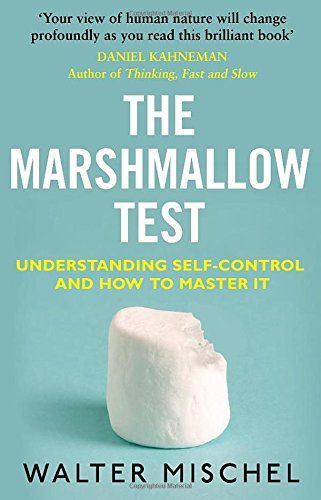Renowned cognition researcher Walter Mischel offers a useful, accessible report to give readers a greater understanding of the role of self-control and how it relates to crucial mental attributes.

Cool Your Thinking
Psychologist Walter Mischel – the Robert Johnston Niven Professor of Humane Letters in the Department of Psychology at Columbia University – has authored more than 200 scientific papers and is one of the most-cited psychologists of the 20th century.
My own impatience and the discovery that self-control strategies can be learned, has kept me studying those strategies for a lifetime.Walter Mischel
He offers a useful, accessible report on the role of self-control and how it relates to crucial mental attributes and the thwarting of harmful habits. He proves a boon to parents who want to help their kids succeed and to all those seeking insight into how to improve their self-control. For all his brilliance, Mischel writes with a determination that laypeople should be able to understand and apply his groundbreaking insights.
“The Marshmallow Test”
In the 1960s, Mischel began a series of cognitive research studies known as the Marshmallow Test. His research team gave preschoolers at Stanford University’s Bing Nursery School a choice between earning one immediate reward, such as a marshmallow, or earning two rewards, such as two marshmallows, if they could wait 20 minutes before eating the marshmallow in front of them.
How some children fought for self-control and whether they managed to delay gratification proved a remarkable indicator of their later school performance and success in life.
Kids who waited to earn two treats devised individual “distraction strategies” to resist temptation and to handle conflict and stress. Some sang. Some looked away. Some gave themselves orders. When researchers repeated the test with pictures of treats, the children waited much longer; they knew they couldn’t eat pictures.
This skill set is visible and measurable early in life and has profound long-term consequences for people’s welfare and mental and physical health over the life span.Walter Mischel
As the kids aged, Mischel reports, those who had delayed gratification as tots demonstrated better self-control than those who had succumbed to temptation. They handled stress more capably, planned more, showed greater motivation, and excelled at paying attention and thinking rationally. The students who lasted longest on the Marshmallow Test scored 210 points higher on their SAT (college qualification tests) than other students. They maintained healthier weights, excelled at relationships, pursued higher levels of education and resisted addiction.
Hot Versus Cool Thinking
Mischel frames the self-control battle as a contest between hot and cool thinking. Hot thinking emphasizes the sensations of a treat and its immediate rewards. The cool cognitive system lives in the prefrontal cortex, which supports higher-level conceptual thinking. A cool approach distances temptation. The hotter the reward, the more difficulty you may have cooling off your response.
Your sense of your future self shapes your self-control. When you connect to your future self, you protect that self’s welfare. When you feel disconnected, you find it harder to make choices that serve your future interests. To cool down, avoid decisions based on desire and extrapolate the future implications of your choices.
The ability to delay immediate gratification for the sake of future consequences is an acquirable cognitive skill.Walter Mischel
Infants’ emotional experiences shape their brains. Caregivers can guide babies’ attention away from upsetting experiences to teach them to self-distract and stay cool. Children with mothers who were supportive but not controlling show superior “cognitive and attention-control skills.”
Mischel cites former president Bill Clinton and US Army General David Petraeus, who both demonstrated powerful self-control during their careers. Yet each man damaged his reputation by showing a lack of judgment and inexplicably embracing temptation in personal relationships. People often expect anyone with self-control to use it all the time, and they believe that those who demonstrate a lack of self-control one time don’t have any self-control at other times.
When you make a mistake, Mischel found, your mind calls upon your self-protective psychological immune system to insulate you from stress and depression.
Whether you exercise self-control depends on your situation and context and your perception of both. If the temptation is intense and the consequences seem distant or unlikely, you are likelier to succumb. Sometimes people behave consistently until something triggers a different action or response. To enhance your self-control, identify your triggers.
“High Rejection Sensitivity”
People who suffer high sensitivity to rejection live in anxiety about being rejected and, through acting out that anxiety, often earn the rejection that terrifies them.
As the public interest in the topic of willpower increases, so does the amount and depth of scientific information on how delay of gratification and self-control are enabled, both psychologically and biologically.Walter Mischel
High-RS people interpret other people’s actions through a lens of anxiety. If a partner is quiet during breakfast, for example, a high-RS person may regard that silence as intentional coolness and neglect. Such people blame others for emotions that exist only in their minds.
Lessons
To foment a society in which people exercise self-control and act rationally, Mischel believes schools should teach cognitive skills.
The Marshmallow Test became the tool for studying how people go from a choice to delay gratification to actually managing to wait and resist the temptation.Walter Mischel
Be a role model of the self-control you want children to practice. Demonstrate the links between their choices and the consequences of those choices. And remember: Self-control is hard work.
Groundbreaking
Mischel is a surprisingly readable scientist. He uses scant jargon and draws conclusions from the myriad studies he cites, so you don’t have to. Mischel uses each study to make clear, worthwhile points that can be revelatory. Some may cause you to reconsider your childhood and how your decision-making patterns formed. Some may cause you to change the way you interact with your children.
Mischel’s conclusions, though presented with rigorous understatement, are both groundbreaking and far-reaching. They may also seem incongruously familiar; after reading about a study Mischel cites, you may snap your fingers and say: “Of course that’s why I acted like that!” And if you don’t like how you acted, Mischel offers ways to strengthen your self-control and self-awareness. You will likely read and re-read the passages that seem most relevant to you and be grateful for his insights.
Walter Mischel’s other books include Personality and Assessment and Introduction to Personality. Additional books on self-control include Atomic Habits by James Clear and Mindset by Carol S. Dweck.





